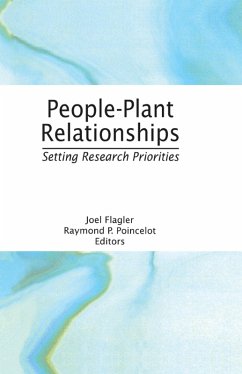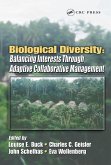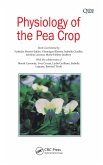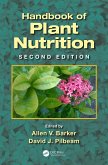62,95 €
62,95 €
inkl. MwSt.
Sofort per Download lieferbar

31 °P sammeln
62,95 €
Als Download kaufen

62,95 €
inkl. MwSt.
Sofort per Download lieferbar

31 °P sammeln
Jetzt verschenken
Alle Infos zum eBook verschenken
62,95 €
inkl. MwSt.
Sofort per Download lieferbar
Alle Infos zum eBook verschenken

31 °P sammeln
- Format: PDF
- Merkliste
- Auf die Merkliste
- Bewerten Bewerten
- Teilen
- Produkt teilen
- Produkterinnerung
- Produkterinnerung

Bitte loggen Sie sich zunächst in Ihr Kundenkonto ein oder registrieren Sie sich bei
bücher.de, um das eBook-Abo tolino select nutzen zu können.
Hier können Sie sich einloggen
Hier können Sie sich einloggen
Sie sind bereits eingeloggt. Klicken Sie auf 2. tolino select Abo, um fortzufahren.

Bitte loggen Sie sich zunächst in Ihr Kundenkonto ein oder registrieren Sie sich bei bücher.de, um das eBook-Abo tolino select nutzen zu können.
Presenting the latest research on cross-cultural people-plant relationships, this volume conveys the psychological, physiological, and social responses to plants and the significant role these responses play in improved physical and mental health. With chapters written by field experts, it identifies research priorities and methodologies and outlin
- Geräte: PC
- ohne Kopierschutz
- eBook Hilfe
- Größe: 28.98MB
Andere Kunden interessierten sich auch für
![Plants and People (eBook, PDF) Plants and People (eBook, PDF)]() Christopher CumoPlants and People (eBook, PDF)84,95 €
Christopher CumoPlants and People (eBook, PDF)84,95 €![Plant Virus, Vector (eBook, PDF) Plant Virus, Vector (eBook, PDF)]() S. MukhopadhyayPlant Virus, Vector (eBook, PDF)79,95 €
S. MukhopadhyayPlant Virus, Vector (eBook, PDF)79,95 €![Advances in Hemp Research (eBook, PDF) Advances in Hemp Research (eBook, PDF)]() Paoli RanalliAdvances in Hemp Research (eBook, PDF)55,95 €
Paoli RanalliAdvances in Hemp Research (eBook, PDF)55,95 €![Biological Diversity (eBook, PDF) Biological Diversity (eBook, PDF)]() Biological Diversity (eBook, PDF)65,95 €
Biological Diversity (eBook, PDF)65,95 €![Advances in Plant Disease Management (eBook, PDF) Advances in Plant Disease Management (eBook, PDF)]() Advances in Plant Disease Management (eBook, PDF)51,95 €
Advances in Plant Disease Management (eBook, PDF)51,95 €![Physiology of the Pea Crop (eBook, PDF) Physiology of the Pea Crop (eBook, PDF)]() Nathalie Munier-JolainPhysiology of the Pea Crop (eBook, PDF)67,95 €
Nathalie Munier-JolainPhysiology of the Pea Crop (eBook, PDF)67,95 €![Handbook of Plant Nutrition (eBook, PDF) Handbook of Plant Nutrition (eBook, PDF)]() Handbook of Plant Nutrition (eBook, PDF)49,95 €
Handbook of Plant Nutrition (eBook, PDF)49,95 €-
-
-
Presenting the latest research on cross-cultural people-plant relationships, this volume conveys the psychological, physiological, and social responses to plants and the significant role these responses play in improved physical and mental health. With chapters written by field experts, it identifies research priorities and methodologies and outlin
Dieser Download kann aus rechtlichen Gründen nur mit Rechnungsadresse in A, B, BG, CY, CZ, D, DK, EW, E, FIN, F, GR, HR, H, IRL, I, LT, L, LR, M, NL, PL, P, R, S, SLO, SK ausgeliefert werden.
Produktdetails
- Produktdetails
- Verlag: Taylor & Francis eBooks
- Seitenzahl: 466
- Erscheinungstermin: 4. Mai 2018
- Englisch
- ISBN-13: 9781351425513
- Artikelnr.: 56842531
- Verlag: Taylor & Francis eBooks
- Seitenzahl: 466
- Erscheinungstermin: 4. Mai 2018
- Englisch
- ISBN-13: 9781351425513
- Artikelnr.: 56842531
- Herstellerkennzeichnung Die Herstellerinformationen sind derzeit nicht verfügbar.
Poincelot, Raymond P; Flagler, Joel
Plants and Human Culture. Plants and Human Culture. American Women and
Their Gardens: A Study in Health, Happiness,
and Power, 1600-1900. Are We Afraid of Plants? Exploring Patriarchal
Society's Devaluing of Plants, Women, and Nature. Consuming a Therapeutic
Landscape: A Multicontextual Framework for Assessing the Health Signifance
of Human-Plant Interactions. Adoption and Abandonment of Southeast Asian
Food Plants. Gathered Food and Culture Change: Traditions in Transition in
Northeastern Thailand. People, Plants, and Proto-Paysage: A Study of
Ornamental Plants in Residential Front Yards in Honolulu, Hawaii. The
Gardens of Hikone, Japan: Studying People-Plant Relationships in Another
Culture. From Open-Mindedness to Naturalism: Garden Design and Ideology in
Germany During the Early 20th Century. Plants and the Community.
Cultivating People-Plant Relationships in Community and Cultural Heritage
Gardens, San Jose, California (1977-1992). Gardening's Impact on People's
Behavior. Gardening Changes a Community. Down to Earth Benefits of
People-Plant Interactions in Our Community. Human and Plant Ecology: Living
Well with Less. Evaluating Horticultural Therapy: The Ecological Context of
Urban Jail Inmates. Plants and the Individual. Plants and the Individual: A
Recent History. People-Plant Principles from the Past. The Evolutionary
Importance of People-Plant Relationships. Indoor Plants and Pollution
Reduction. Growing Fear: Home Horticulture and the Threat of Lyme Disease.
Studying the Corporate Garden. Part II, Horticultural Therapy. Corrections
and the Green Industry. Use of Sensory Stimulation with Alzheimer Patients
in a Garden Setting, RTI, Hawthorne, New York. Measuring the Quality of
Treatment in Horticultural Therapy Groups. Surveying the Therapeutic
Landscape: A Quest for Cases of Outdoor Therapy Settings. Combining
Phototherapy with Horticulture Therapy. Research and Implementation.
Historical Perspectives on the People-Plant Council. Experimental
Approaches to the Study of People-Plant Relationships. Nurturing
People-Plant Relationships in Order to Foster Environmental and Community
Stewardship: The Rutgers Environmental and Community Stewardship
(R.E.A.C.S.) Program. A Socio-Economic Impact of New Crops Production on
Diverse Groups of People: A Case Study in Northwest Missouri. Encouraging
Nurturing Behavior of Two to Seven Year Olds by Introducing Plants and
Flowers. Risk Communication Methods for Newspaper Gardening Columns.
Creation of A LIVING LIBRARY(TM): A Planetary Network of Interactive LIFE
FRAMES(TM).
Their Gardens: A Study in Health, Happiness,
and Power, 1600-1900. Are We Afraid of Plants? Exploring Patriarchal
Society's Devaluing of Plants, Women, and Nature. Consuming a Therapeutic
Landscape: A Multicontextual Framework for Assessing the Health Signifance
of Human-Plant Interactions. Adoption and Abandonment of Southeast Asian
Food Plants. Gathered Food and Culture Change: Traditions in Transition in
Northeastern Thailand. People, Plants, and Proto-Paysage: A Study of
Ornamental Plants in Residential Front Yards in Honolulu, Hawaii. The
Gardens of Hikone, Japan: Studying People-Plant Relationships in Another
Culture. From Open-Mindedness to Naturalism: Garden Design and Ideology in
Germany During the Early 20th Century. Plants and the Community.
Cultivating People-Plant Relationships in Community and Cultural Heritage
Gardens, San Jose, California (1977-1992). Gardening's Impact on People's
Behavior. Gardening Changes a Community. Down to Earth Benefits of
People-Plant Interactions in Our Community. Human and Plant Ecology: Living
Well with Less. Evaluating Horticultural Therapy: The Ecological Context of
Urban Jail Inmates. Plants and the Individual. Plants and the Individual: A
Recent History. People-Plant Principles from the Past. The Evolutionary
Importance of People-Plant Relationships. Indoor Plants and Pollution
Reduction. Growing Fear: Home Horticulture and the Threat of Lyme Disease.
Studying the Corporate Garden. Part II, Horticultural Therapy. Corrections
and the Green Industry. Use of Sensory Stimulation with Alzheimer Patients
in a Garden Setting, RTI, Hawthorne, New York. Measuring the Quality of
Treatment in Horticultural Therapy Groups. Surveying the Therapeutic
Landscape: A Quest for Cases of Outdoor Therapy Settings. Combining
Phototherapy with Horticulture Therapy. Research and Implementation.
Historical Perspectives on the People-Plant Council. Experimental
Approaches to the Study of People-Plant Relationships. Nurturing
People-Plant Relationships in Order to Foster Environmental and Community
Stewardship: The Rutgers Environmental and Community Stewardship
(R.E.A.C.S.) Program. A Socio-Economic Impact of New Crops Production on
Diverse Groups of People: A Case Study in Northwest Missouri. Encouraging
Nurturing Behavior of Two to Seven Year Olds by Introducing Plants and
Flowers. Risk Communication Methods for Newspaper Gardening Columns.
Creation of A LIVING LIBRARY(TM): A Planetary Network of Interactive LIFE
FRAMES(TM).
Plants and Human Culture. Plants and Human Culture. American Women and
Their Gardens: A Study in Health, Happiness,
and Power, 1600-1900. Are We Afraid of Plants? Exploring Patriarchal
Society's Devaluing of Plants, Women, and Nature. Consuming a Therapeutic
Landscape: A Multicontextual Framework for Assessing the Health Signifance
of Human-Plant Interactions. Adoption and Abandonment of Southeast Asian
Food Plants. Gathered Food and Culture Change: Traditions in Transition in
Northeastern Thailand. People, Plants, and Proto-Paysage: A Study of
Ornamental Plants in Residential Front Yards in Honolulu, Hawaii. The
Gardens of Hikone, Japan: Studying People-Plant Relationships in Another
Culture. From Open-Mindedness to Naturalism: Garden Design and Ideology in
Germany During the Early 20th Century. Plants and the Community.
Cultivating People-Plant Relationships in Community and Cultural Heritage
Gardens, San Jose, California (1977-1992). Gardening's Impact on People's
Behavior. Gardening Changes a Community. Down to Earth Benefits of
People-Plant Interactions in Our Community. Human and Plant Ecology: Living
Well with Less. Evaluating Horticultural Therapy: The Ecological Context of
Urban Jail Inmates. Plants and the Individual. Plants and the Individual: A
Recent History. People-Plant Principles from the Past. The Evolutionary
Importance of People-Plant Relationships. Indoor Plants and Pollution
Reduction. Growing Fear: Home Horticulture and the Threat of Lyme Disease.
Studying the Corporate Garden. Part II, Horticultural Therapy. Corrections
and the Green Industry. Use of Sensory Stimulation with Alzheimer Patients
in a Garden Setting, RTI, Hawthorne, New York. Measuring the Quality of
Treatment in Horticultural Therapy Groups. Surveying the Therapeutic
Landscape: A Quest for Cases of Outdoor Therapy Settings. Combining
Phototherapy with Horticulture Therapy. Research and Implementation.
Historical Perspectives on the People-Plant Council. Experimental
Approaches to the Study of People-Plant Relationships. Nurturing
People-Plant Relationships in Order to Foster Environmental and Community
Stewardship: The Rutgers Environmental and Community Stewardship
(R.E.A.C.S.) Program. A Socio-Economic Impact of New Crops Production on
Diverse Groups of People: A Case Study in Northwest Missouri. Encouraging
Nurturing Behavior of Two to Seven Year Olds by Introducing Plants and
Flowers. Risk Communication Methods for Newspaper Gardening Columns.
Creation of A LIVING LIBRARY(TM): A Planetary Network of Interactive LIFE
FRAMES(TM).
Their Gardens: A Study in Health, Happiness,
and Power, 1600-1900. Are We Afraid of Plants? Exploring Patriarchal
Society's Devaluing of Plants, Women, and Nature. Consuming a Therapeutic
Landscape: A Multicontextual Framework for Assessing the Health Signifance
of Human-Plant Interactions. Adoption and Abandonment of Southeast Asian
Food Plants. Gathered Food and Culture Change: Traditions in Transition in
Northeastern Thailand. People, Plants, and Proto-Paysage: A Study of
Ornamental Plants in Residential Front Yards in Honolulu, Hawaii. The
Gardens of Hikone, Japan: Studying People-Plant Relationships in Another
Culture. From Open-Mindedness to Naturalism: Garden Design and Ideology in
Germany During the Early 20th Century. Plants and the Community.
Cultivating People-Plant Relationships in Community and Cultural Heritage
Gardens, San Jose, California (1977-1992). Gardening's Impact on People's
Behavior. Gardening Changes a Community. Down to Earth Benefits of
People-Plant Interactions in Our Community. Human and Plant Ecology: Living
Well with Less. Evaluating Horticultural Therapy: The Ecological Context of
Urban Jail Inmates. Plants and the Individual. Plants and the Individual: A
Recent History. People-Plant Principles from the Past. The Evolutionary
Importance of People-Plant Relationships. Indoor Plants and Pollution
Reduction. Growing Fear: Home Horticulture and the Threat of Lyme Disease.
Studying the Corporate Garden. Part II, Horticultural Therapy. Corrections
and the Green Industry. Use of Sensory Stimulation with Alzheimer Patients
in a Garden Setting, RTI, Hawthorne, New York. Measuring the Quality of
Treatment in Horticultural Therapy Groups. Surveying the Therapeutic
Landscape: A Quest for Cases of Outdoor Therapy Settings. Combining
Phototherapy with Horticulture Therapy. Research and Implementation.
Historical Perspectives on the People-Plant Council. Experimental
Approaches to the Study of People-Plant Relationships. Nurturing
People-Plant Relationships in Order to Foster Environmental and Community
Stewardship: The Rutgers Environmental and Community Stewardship
(R.E.A.C.S.) Program. A Socio-Economic Impact of New Crops Production on
Diverse Groups of People: A Case Study in Northwest Missouri. Encouraging
Nurturing Behavior of Two to Seven Year Olds by Introducing Plants and
Flowers. Risk Communication Methods for Newspaper Gardening Columns.
Creation of A LIVING LIBRARY(TM): A Planetary Network of Interactive LIFE
FRAMES(TM).







